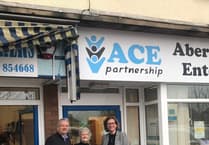As of July 1 last year, there were 698 children being home educated across Newport, Torfaen, Monmouthshire, Blaenau Gwent and Caerphilly county borough, up from 500 at the same time in 2020.
This is an increase of 52 per cent from July 2019, before the Covid-19 pandemic started, when there were 458 children registered for home education.
The number of families choosing to home educate across Gwent has been gradually increasing over the last five years, figures from Freedom of Information requests lodged by the Local Democracy Reporting Service also show.
In July 2017, there were 287 children registered for home education across Gwent’s five local authorities.
But figures suggest the trend has been accelerated following the Covid-19 pandemic.
Increasing numbers of parents have elected to home educate their children, notifying the council and removing them from the school register.
Torfaen has seen a 93 per cent increase in those registered for home education from 2019, with the number rising from 89 to 172 in July 2021.
Numbers in Caerphilly have risen by 76 per cent, from 86 to 151 in the same period.
Newport has seen a rise from 125 to 170, Blaenau Gwent from 86 to 112 and Monmouthshire from 72 to 93 during this time.
Sally Holland, children’s commissioner for Wales, said the rise in numbers being home educated since the pandemic “makes it even more important that the law is strengthened in this area”.
“Home education is a positive choice for some families but others enter into it in an unplanned way because their children are not coping with school for a wide variety of reasons,” Ms Holland said.
“Children need better support and safeguards. At the moment, some simply drop off the radar with few means of ensuring they are receiving a suitable education, seen and listened to.
“Without this it is simply not possible to know whether their human rights to education, socialisation and safety are being met.
‘‘This is not good enough, and sadly, we know in Wales that on rare occasions this can have devastating and tragic consequences.
“It needs to change.”
Cecile Gwilym, policy and public affairs manager for NSPCC Cymru, said it is ‘crucial’ that students who have not returned to school are identified so that they can be supported by local authorities.
“While every family has a right to educate a child and home learning, of itself, is not a risk factor for abuse or neglect, it is absolutely vital that we ensure children who are not attending schools do not fall off the local services radar and the NSPCC has long supported registration for children who are educated at home,” Ms Gwilym said.
“It is disappointing that proposals for such a register have been shelved by Welsh Government, especially at a time when children and families are in increased need of support due to the pandemic.”
The Welsh Government said it has made £1.7 million available this year, including funding for education resources and activities for home educated learners.
A spokesman said: “We are developing proposals that will further strengthen the existing framework, to help ensure home educated children receive a suitable education and their wellbeing needs are met.
“This includes new statutory guidance for local authorities, increased support for home educated children and improved advice and support for home educators.
“There will also be a database to assist local authorities with their statutory duty to identify children in their area who are of compulsory school age and not receiving a suitable education.”




